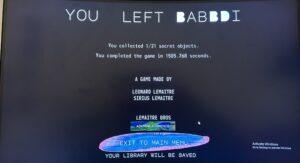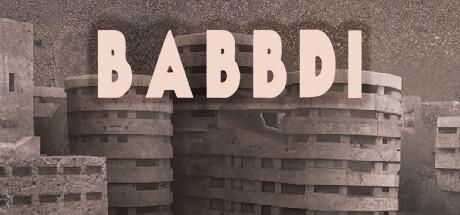Babbdi is a first-person exploration game that prompts players to explore the city and figure out how to leave. It was created by Sirius and Leondard Lemaitre and was published by the Lemaitre Bros. Babbdi has a target audience of players that enjoy narrative-driven explorations, particularly those who enjoy mystery and discovery. For my critical play, I played Babbdi on Steam using my Mac.
In Babbdi, walking serves as a means of uncovering the narrative-driven story behind the city, transcending mere physical movement. Immediately following the start of the game, players are prompted to leave the city and their curiosity is ignited. Players employ the main mechanic of walking as they explore the game world. They must traverse the maze-like ruins of Babbdi, navigating dark alleyways and canals to uncover hidden items and collect special objects – one of the objectives of the game. Moreover, players encounter civilians of Babbdi as they make their way through the city. When the players are near civilians, the civilians gaze at them with cold, unwelcoming stares. Players can choose to talk to them, in which the civilians sometimes share tips on escaping Babbdi.
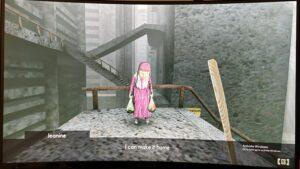

The act of walking allows players to interact with the environment of Babbdi. Through these interactions, players can fulfill the psychological need for information. In particular, players slowly piece together why civilians of Babbdi want to leave the city, but why they have also given up on leaving. Civilians hint at a broken ticketing machine, so nobody can escape since nobody can get a train ticket. This lends to the main objective of Babbdi, which is finding a ticket, so the player can leave the city. Through these interactions and making observations of the city, players are able to satisfy their curiosity and it inherently fuels an intrinsic motivation to continue digging into the story of Babbdi.
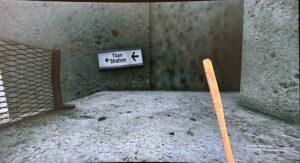
The act of walking also fulfills the psychological need of achievement. As players collect items and special objects, they gain a sense of achievement. These collections serve as markers of progression. Furthermore, finding these items is an achievement of its own, since Babbdi comes with very little instruction. Players are empowered to navigate the city at their own pace and in their own way. This was a good design choice because it allows players to create their own objectives, especially if players are familiar with the game. For example, players can decide on a subset of items to collect, or they can attempt to escape the city in a certain amount of time. This enforces a sense of autonomy that provides players the freedom to create their own discovery story.
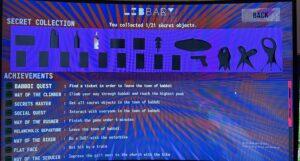
Players experience the aesthetic of sensation as they play Babbdi. As mentioned, the cold, dark atmosphere of the city and its physical appearance evoke feelings of desolation, abandonment, and mystery. The game occasionally employs eerie sound effects that emphasize the haunting atmosphere, but the main noise is from the player walking. In addition, the voices of civilians are incomprehensible and mystifying as they talk in short, bleak sentences. Despite the collective desire to leave the city, the civilians reinforce a feeling of isolation and loneliness that expands upon the city. Nonetheless, players are keen to explore Babbdi in the immersive experience created through the visual and auditory features.
But at its core, Babbdi embodies the aesthetic of discovery, inviting players to explore the unmapped city filled with secrets. The city itself serves as a labyrinth, so players must rely on their power of observation to uncover the mystery of Babbdi. Likewise, players are encouraged to interact with the environment in ways beyond spatial exploration – like engaging with civilians. Players are not only further immersed into the city of Babbdi but also empowered to create their own path to discovery.

